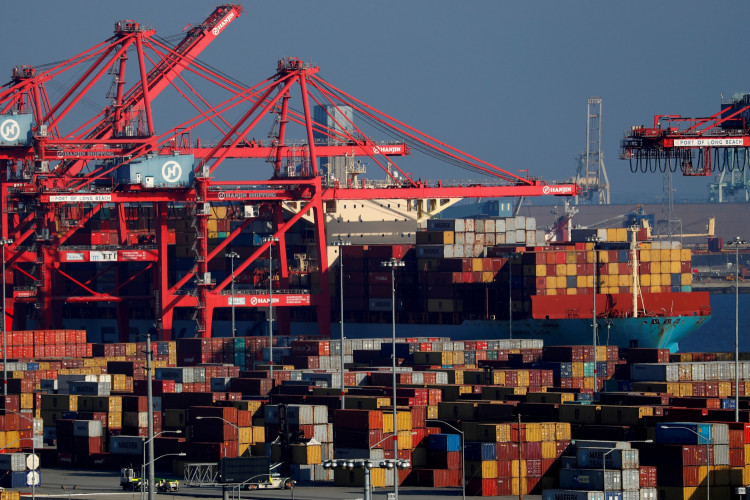China imposed sanctions Tuesday on five U.S.-based subsidiaries of South Korean shipbuilder Hanwha Ocean, escalating a trade confrontation tied to a U.S. investigation into Beijing's dominance in global shipbuilding. The move underscores deepening economic rifts as both sides expand port fees and tariffs amid a renewed clash over industrial policy and national security.
China's Commerce Ministry said the sanctions, effective immediately, prohibit Chinese firms and individuals from doing business with Hanwha's U.S. units, including Hanwha Shipping LLC, Hanwha Philly Shipyard Inc., Hanwha Ocean USA International LLC, Hanwha Shipping Holdings LLC, and HS USA Holdings Corp. Beijing accused the companies of "assisting and supporting the U.S. government's probes and measures against Chinese maritime, logistics and shipbuilding sectors."
"China is strongly dissatisfied and resolutely opposes it," the ministry said, calling Washington's Section 301 investigation a threat to China's national security and shipping industry. The U.S. Trade Representative launched the probe in April 2024 to assess whether China's dominance in shipbuilding had harmed U.S. industrial competitiveness.
Shares of Hanwha Ocean fell as much as 8% in Seoul before closing 5.8% lower following the announcement. The company said in a statement that it was "aware of the announcement made by the Chinese government and is closely reviewing its potential business impact." A spokesperson for Hanwha USA, Linda Johnson, added, "Hanwha will continue to provide world-class maritime services to our customers, including through our investments in the U.S. maritime industry and via Hanwha Philly Shipyard."
China's retaliatory step coincided with the launch of new reciprocal port fees between Washington and Beijing. The U.S. began imposing surcharges on Chinese ships entering American ports at midnight Tuesday, while China applied matching fees of 400 yuan ($56) per net ton on U.S.-linked vessels, exempting Chinese-built ships. Container vessels typically range from 50,000 to 220,000 tons, suggesting costs that could exceed $10 million for a single large ship call.
Beijing also announced an investigation into the U.S. shipbuilding probe's broader effects on Chinese maritime interests, warning that further retaliatory measures could follow. "China just weaponized shipbuilding," said Kun Cao, deputy chief executive at consulting firm Reddal. "Beijing is signaling it will hit third-country firms that help Washington counter China's maritime dominance."
Hanwha, one of South Korea's largest defense and industrial conglomerates, has deepened its U.S. footprint over the past two years in alignment with American efforts to rebuild domestic shipbuilding capacity. The company acquired Philly Shipyard in Pennsylvania in late 2024 for $100 million and announced plans to invest $5 billion in new docks and infrastructure to support U.S. naval and commercial shipbuilding. It also holds maintenance and overhaul contracts with the U.S. Navy.
South Korea's Foreign Ministry said it was assessing the potential fallout from Beijing's sanctions, pledging to "communicate with relevant ministries, industry representatives and the Chinese side to minimize damages resulting from these measures."
The sanctions come as trade tensions between Washington and Beijing intensify once again. President Donald Trump recently threatened to impose a 100% tariff on Chinese imports, retaliating against new Chinese restrictions on rare earth exports. The dispute has cast uncertainty over a planned meeting between Trump and Chinese President Xi Jinping later this month.
China accounts for more than half of global shipbuilding output, followed by South Korea at around 30% and Japan at about 10%. U.S. shipbuilders, by contrast, control only 0.1% of global tonnage. Trump has repeatedly vowed to "rebuild America's shipyards" as part of his broader push to restore industrial capacity.





